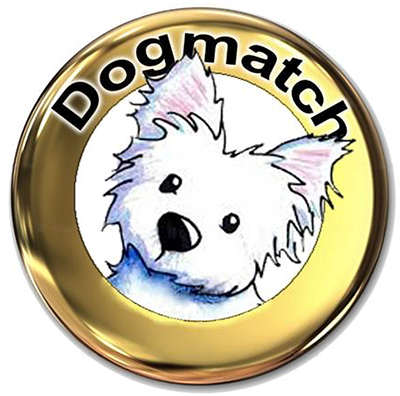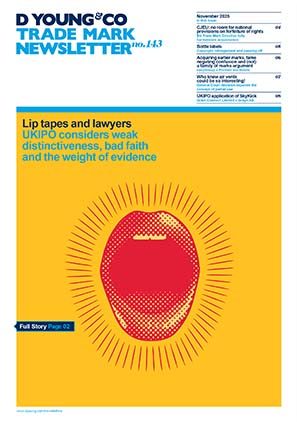It’s not puppy love: Match.com swipes left on Dogmatch logo
Match Group LLC, which operates the successful online dating website “Match.com”, has successfully objected to the trade mark application “Dogmatch” logo. Match Group submitted a substantial amount of evidence to prove its reputation and convinced the European Intellectual Property Office (EUIPO) to refuse an application for unrelated services. Does this decision suggest Match.com has gained exclusivity or a monopoly right in the term “MATCH”?
Fönstria AB sought protection for the following figurative sign:

The services claimed included “Advertising, marketing and promotional services”, class 35; “Providing internet chatrooms” class 38; and, “on-line social networking services”, “dog walking services”, “pet sitting” and “dating services, dating agency services” class 45.
Match Group LLC opposed relying on its “Match.com” registration covering “information and consultancy services in the nature and field of on-line dating and introduction services” class 42 relying on Article 8(5) reputation and alleged an unfair advantage would be taken. In addition, Match Group LLC claimed Article 8(1)(b), a likelihood of confusion and Article 8(4) based on their unregistered trade mark rights.
In July 2019 Match Group LLC submitted a vast amount of evidence to support its claim of a reputation. This consisted of the company’s revenue, previous office decisions, its market share value in the Nordic countries and the United Kingdom, marketing expenditure in the EU countries via television, social media and radio, advertising expenditure in the UK, social media’s subscriptions and publications, press coverage across the EU, UK based advertisement campaigns and a list of the turnover figures generated.
Evaluating the evidence, the Opposition Division concluded that the articles and advertisement figures submitted by Match Group LLC clearly created a link between the registered mark “Match.com” and the services, namely providing information and advice on online dating and introducing people to one another on a web platform. The EUIPO attached weight to the large turnover figures submitted by Match Group LLC and the numbers of subscribers and viewers claimed borne out by the articles, reports and related rankings collated and presented by an independent source.
Taken as a whole the evidence established a long-standing, intensive and diverse exposure of the brand to the public, in the view of the EUIPO.
The Opposition Division then compared the two marks, placing the key emphasis on the “MATCH” element whilst recognising its average distinctive character, and deemed them to be visually, aurally and conceptually similar to an average degree. It went on to say that consumers would likely link the two signs together as referring to a specific segment of the services offered by “Match.com”, namely for dog owners looking for a match for their pets or by a person looking for the right pet. In addition to online dating, the “Match.com” website offers consumers the ability to specify their dating needs to meet people who have a shared commitment to canines.
In considering the services listed in class 35, the Opposition Division concluded that the specific reputation of “Match.com”, included qualitative aspects such as a particular image, lifestyle or particular circumstances of marketing. Accordingly the degree of similarity between the marks allows for the image of the “Match.com” mark to be transferred to Dogmatch, notwithstanding the distance between the services offered by each party.
Fönstria AB argued that in various mediation services the term “MATCH” can be considered to have a low distinctiveness and therefore the opponent’s mark should only be afforded a limited scope of protection. In addition, it argued that “Match.com” and “Dogmatch” have different objectives and target different clients, “Dogmatch” being available for all types of audiences whereas “Match.com” is specified for single people only.
The Opposition Division acknowledged that the component “MATCH” on its own could have a limited level of distinctiveness, however it confirmed that “Match.com” has achieved a high degree of recognition and that a conceptual link exists between the marks. The EUIPO concluded that “Dogmatch” was likely to take unfair advantage of the distinctive or the repute of “Match.com”, rejecting “Dogmatch” for all contested services.
Whilst other famous brands including the likes of KENZO, ZARA and STARBUCKS have successfully invoked Article 8(5) to block marks containing their distinctive element for unrelated goods and services one wonders if the similarity here combined with the perhaps lower level of distinctiveness attached to the word “MATCH” was enough to get the online dating site home.
Will Fönstria AB take this lying down or might the rather sweet looking puppy in its mark bite back?
